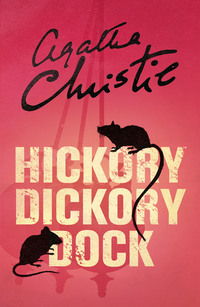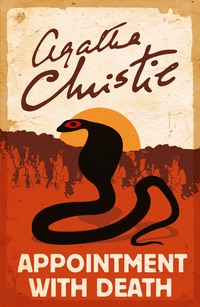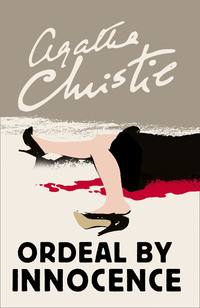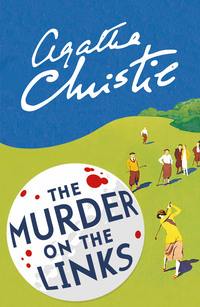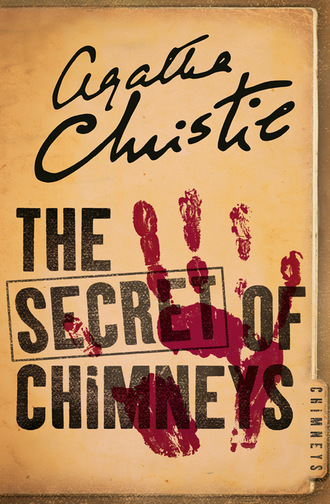
Полная версия
‘So that there wouldn’t be any difficulty in finding a king?’
‘Not in the least, I should say,’ replied Jimmy. ‘You know, I don’t wonder at their getting tired of republican institutions. A full-blooded, virile people like that must find it awfully tame to pot at presidents after being used to kings. And talking of kings, that reminds me of something else old Stylptitch let out that night. He said he knew the gang that was after him. They were King Victor’s people, he said.’
‘What?’ Anthony wheeled round suddenly.
A short grin widened on McGrath’s face.
‘Just a mite excited, aren’t you, Gentleman Joe?’ he drawled.
‘Don’t be an ass, Jimmy. You’ve just said something rather important.’
He went over to the window and stood there looking out.
‘Who is this King Victor, anyway?’ demanded Jimmy. ‘Another Balkan monarch?’
‘No,’ said Anthony slowly. ‘He isn’t that kind of a king.’
‘What is he, then?’
There was a pause, and then Anthony spoke.
‘He’s a crook, Jimmy. The most notorious jewel thief in the world. A fantastic, daring fellow, not to be daunted by anything. King Victor was the nickname he was known by in Paris. Paris was the headquarters of his gang. They caught him there and put him away for seven years on a minor charge. They couldn’t prove the more important things against him. He’ll be out soon–or he may be out already.’
‘Do you think Count Stylptitch had anything to do with putting him away? Was that why the gang went for him? Out of revenge?’
‘I don’t know,’ said Anthony. ‘It doesn’t seem likely on the face of it. King Victor never stole the crown jewels of Herzoslovakia as far as I’ve heard. But the whole thing seems rather suggestive, doesn’t it? The death of Stylptitch, the memoirs, and the rumours in the papers–all vague but interesting. And there’s a further rumour to the effect that they’ve found oil in Herzoslovakia. I’ve a feeling in my bones, James, that people are getting ready to be interested in that unimportant little country.’
‘What sort of people?’
‘Hebraic people. Yellow-faced financiers in city offices.’
‘What are you driving at with all this?’
‘Trying to make an easy job difficult, that’s all.’
‘You can’t pretend there’s going to be any difficulty in handing over a simple manuscript at a publisher’s office?’
‘No,’ said Anthony regretfully. ‘I don’t suppose there’ll be anything difficult about that. But shall I tell you, James, where I propose to go with my two hundred and fifty pounds?’
‘South America?’
‘No, my lad, Herzoslovakia. I shall stand in with the republic, I think. Very probably I shall end up as president.’
‘Why not announce yourself as the principal Obolovitch and be a king whilst you’re about it?’
‘No, Jimmy. Kings are for life. Presidents only take on the job for four years or so. It would quite amuse me to govern a kingdom like Herzoslovakia for four years.’
‘The average for kings is even less, I should say,’ interpolated Jimmy.
‘It will probably be a serious temptation to me to embezzle your share of the thousand pounds. You won’t want it, you know, when you get back weighed down with nuggets. I’ll invest it for you in Herzoslovakian oil shares. You know, James, the more I think of it, the more pleased I am with this idea of yours. I should never have thought of Herzoslovakia if you hadn’t mentioned it. I shall spend one day in London, collecting the booty, and then away by the Balkan Express!’
‘You won’t get off quite as fast as that. I didn’t mention it before, but I’ve got another little commission for you.’
Anthony sank into a chair and eyed him severely.
‘I knew all along that you were keeping something dark. This is where the catch comes in.’
‘Not a bit. It’s just something that’s got to be done to help a lady.’
‘Once and for all, James, I refuse to be mixed up in your beastly love affairs.’
‘It’s not a love affair. I’ve never seen the woman. I’ll tell you the whole story.’
‘If I’ve got to listen to more of your long, rambling stories, I shall have to have another drink.’
His host complied hospitably with this demand, then began the tale.
‘It was when I was up in Uganda. There was a dago there whose life I had saved–’
‘If I were you, Jimmy, I should write a short book entitled “Lives I have Saved”. This is the second I’ve heard of this evening.’
‘Oh, well, I didn’t really do anything this time. Just pulled the dago out of the river. Like all dagos, he couldn’t swim.’
‘Wait a minute, has this story anything to do with the other business?’
‘Nothing whatever, though, oddly enough, now I remember it, the man was a Herzoslovakian. We always called him Dutch Pedro, though.’
Anthony nodded indifferently.
‘Any name’s good enough for a dago,’ he remarked. ‘Get on with the good work, James.’
‘Well, the fellow was sort of grateful about it. Hung around like a dog. About six months later he died of fever. I was with him. Last thing, just as he was pegging out, he beckoned me and whispered some excited jargon about a secret–a gold mine, I thought he said. Shoved an oilskin packet into my hand which he’d always worn next his skin. Well, I didn’t think much of it at the time. It wasn’t until a week afterwards that I opened the packet. Then I was curious, I must confess. I shouldn’t have thought that Dutch Pedro would have had the sense to know a gold mine when he saw it–but there’s no accounting for luck–’
‘And at the mere thought of gold, your heart beat pitterpat as always,’ interrupted Anthony.
‘I was never so disgusted in my life. Gold mine, indeed! I dare say it may have been a gold mine to him, the dirty dog. Do you know what it was? A woman’s letters–yes, a woman’s letters, and an Englishwoman at that. The skunk had been blackmailing her–and he had the impudence to pass on his dirty bag of tricks to me.’
‘I like to see your righteous heat, James, but let me point out to you that dagos will be dagos. He meant well. You had saved his life, he bequeathed to you a profitable source of raising money–your high-minded British ideals did not enter his horizon.’
‘Well, what the hell was I to do with the things? Burn ’em, that’s what I thought at first. And then it occurred to me that there would be that poor dame, not knowing they’d been destroyed, and always living in a quake and a dread lest that dago should turn up again one day.’
‘You’ve more imagination than I gave you credit for, Jimmy,’ observed Anthony, lighting a cigarette. ‘I admit that the case presented more difficulties than were at first apparent. What about just sending them to her by post?’
‘Like all women, she’d put no date and no address on most of the letters. There was a kind of address on one–just one word. “Chimneys”.’
Anthony paused in the act of blowing out his match, and he dropped it with a quick jerk of the wrist as it burned his finger.
‘Chimneys?’ he said. ‘That’s rather extraordinary.’
‘Why, do you know it?’
‘It’s one of the stately homes of England, my dear James. A place where kings and queens go for weekends, and diplomatists forgather and diplome.’
‘That’s one of the reasons why I’m so glad that you’re going to England instead of me. You know all these things,’ said Jimmy simply. ‘A josser like myself from the backwoods of Canada would be making all sorts of bloomers. But someone like you who’s been to Eton and Harrow–’
‘Only one of them,’ said Anthony modestly.
‘Will be able to carry it through. Why didn’t I send them to her, you say? Well, it seemed to me dangerous. From what I could make out, she seemed to have a jealous husband. Suppose he opened the letter by mistake. Where would the poor dame be then? Or she might be dead–the letters looked as though they’d been written some time. As I figured it out, the only thing was for someone to take them to England and put them into her own hands.’
Anthony threw away his cigarette, and coming across to his friend, clapped him affectionately on the back.
‘You’re a real knight-errant, Jimmy,’ he said. ‘And the backwoods of Canada should be proud of you. I shan’t do the job half as prettily as you would.’
‘You’ll take it on, then?’
‘Of course.’
McGrath rose, and going across to a drawer, took out a bundle of letters and threw them on the table.
‘Here you are. You’d better have a look at them.’
‘Is it necessary? On the whole, I’d rather not.’
‘Well, from what you say about this Chimneys place, she may have been staying there only. We’d better look through the letters and see if there’s any clue as to where she really hangs out.’
‘I suppose you’re right.’
They went through the letters carefully, but without finding what they had hoped to find. Anthony gathered them up again thoughtfully.
‘Poor little devil,’ he remarked. ‘She was scared stiff.’
Jimmy nodded.
‘Do you think you’ll be able to find her all right?’ he asked anxiously.
‘I won’t leave England till I have. You’re very concerned about this unknown lady, James?’
Jimmy ran his finger thoughtfully over the signature.
‘It’s a pretty name,’ he said apologetically. ‘Virginia Revel.’
Chapter 3
Anxiety in High Places
‘Quite so, my dear fellow, quite so,’ said Lord Caterham.
He had used the same words three times already, each time in the hope that they would end the interview and permit him to escape. He disliked very much being forced to stand on the steps of the exclusive London club to which he belonged and listen to the interminable eloquence of the Hon George Lomax.
Clement Edward Alistair Brent, ninth Marquis of Caterham, was a small gentleman, shabbily dressed, and entirely unlike the popular conception of a marquis. He had faded blue eyes, a thin melancholy nose, and a vague but courteous manner.
The principal misfortune of Lord Caterham’s life was to have succeeded his brother, the eighth marquis, four years ago. For the previous Lord Caterham had been a man of mark, a household word all over England. At one time Secretary of State for Foreign Affairs, he had always bulked largely in the counsels of the Empire, and his country seat, Chimneys, was famous for its hospitality. Ably seconded by his wife, a daughter of the Duke of Perth, history had been made and unmade at informal weekend parties at Chimneys, and there was hardly anyone of note in England–or indeed in Europe–who had not, at one time or another, stayed there.
That was all very well. The ninth Marquis of Caterham had the utmost respect and esteem for the memory of his brother. Henry had done that kind of thing magnificently. What Lord Caterham objected to was the assumption that Chimneys was a national possession rather than a private country house. There was nothing that bored Lord Caterham more than politics–unless it was politicians. Hence his impatience under the continued eloquence of George Lomax. A robust man, George Lomax, inclined to embonpoint, with a red face and protuberant eyes, and an immense sense of his own importance.
‘You see the point, Caterham? We can’t–we simply can’t afford a scandal of any kind just now. The position is one of the utmost delicacy.’
‘It always is,’ said Lord Caterham, with a flavour of irony.
‘My dear fellow, I’m in a position to know!’
‘Oh, quite so, quite so,’ said Lord Caterham, falling back upon his previous line of defence.
‘One slip over this Herzoslovakian business and we’re done. It is most important that the oil concessions should be granted to a British company. You must see that?’
‘Of course, of course.’
‘Prince Michael Obolovitch arrives the end of the week, and the whole thing can be carried through at Chimneys under the guise of a shooting party.’
‘I was thinking of going abroad this week,’ said Lord Caterham.
‘Nonsense, my dear Caterham, no one goes abroad in early October.’
‘My doctor seems to think I’m in rather a bad way,’ said Lord Caterham, longingly eyeing a taxi that was crawling past.
He was quite unable to make a dash for liberty, however, since Lomax had the unpleasant habit of retaining a hold upon a person with whom he was engaged in serious conversation–doubtless the result of long experience. In this case, he had a firm grip of the lapel of Lord Caterham’s coat.
‘My dear man, I put it to you imperially. In a moment of national crisis, such as is fast approaching–’
Lord Caterham wriggled uneasily. He felt suddenly that he would rather give any number of house parties than listen to George Lomax quoting from one of his own speeches. He knew by experience that Lomax was quite capable of going on for twenty minutes without a stop.
‘All right,’ he said hastily, ‘I’ll do it. You’ll arrange the whole thing, I suppose.’
‘My dear fellow, there’s nothing to arrange. Chimneys, quite apart from its historic associations, is ideally situated. I shall be at the Abbey, less than seven miles away. It wouldn’t do, of course, for me to be actually a member of the house party.’
‘Of course not,’ agreed Lord Caterham, who had no idea why it would not do, and was not interested to learn.
‘Perhaps you wouldn’t mind having Bill Eversleigh, though. He’d be useful to run messages.’
‘Delighted,’ said Lord Caterham, with a shade more animation. ‘Bill’s quite a decent shot, and Bundle likes him.’
‘The shooting, of course, is not really important. It’s only the pretext, as it were.’
Lord Caterham looked depressed again.
‘That will be all, then. The Prince, his suite, Bill Eversleigh, Herman Isaacstein–’
‘Who?’
‘Herman Isaacstein. The representative of the syndicate I spoke to you about.’
‘The all-British syndicate?
‘Yes. Why?’
‘Nothing–nothing–I only wondered, that’s all. Curious names these people have.’
‘Then, of course, there ought to be one or two outsiders–just to give the thing a bona fide appearance. Lady Eileen could see to that–young people, uncritical, and with no idea of politics.’
‘Bundle would attend to that all right, I’m sure.’
‘I wonder now.’ Lomax seemed struck by an idea. ‘You remember the matter I was speaking about just now?’
‘You’ve been speaking about so many things.’
‘No, no, I mean this unfortunate contretemps’–he lowered his voice to a mysterious whisper–‘the memoirs–Count Stylptitch’s memoirs.’
‘I think you’re wrong about that,’ said Lord Caterham, suppressing a yawn. ‘People like scandal. Damn it all, I read reminiscences myself–and enjoy ’em too.’
‘The point is not whether people will read them or not–they’ll read them fast enough–but their publication at this juncture might ruin everything–everything. The people of Herzoslovakia wish to restore the monarchy, and are prepared to offer the crown to Prince Michael, who has the support and encouragement of His Majesty’s Government–’
‘And who is prepared to grant concessions to Mr Ikey Hermanstein and Co in return for the loan of a million or so to set him on the throne–’
‘Caterham, Caterham,’ implored Lomax in an agonized whisper. ‘Discretion, I beg of you. Above all things, discretion.’
‘And the point is,’ continued Lord Caterham, with some relish, though he lowered his voice in obedience to the other’s appeal, ‘that some of Stylptitch’s reminiscences may upset the apple-cart. Tyranny and misbehaviour of the Obolovitch family generally, eh? Questions asked in the House. Why replace the present broad-minded and democratic form of government by an obsolete tyranny? Policy dictated by the bloodsucking capitalists. Down with the Government. That kind of thing–eh?’
Lomax nodded.
‘And there might be worse still,’ he breathed. ‘Suppose–only suppose that some reference should be made to–to that unfortunate disappearance–you know what I mean.’
Lord Caterham stared at him.
‘No, I don’t. What disappearance?’
‘You must have heard of it? Why, it happened while they were at Chimneys. Henry was terribly upset about it. It almost ruined his career.’
‘You interest me enormously,’ said Lord Caterham. ‘Who or what disappeared?’
Lomax leant forward and put his mouth to Lord Caterham’s ear. The latter withdrew it hastily.
‘For God’s sake, don’t hiss at me.’
‘You heard what I said?’
‘Yes, I did,’ said Lord Caterham reluctantly. ‘I remember now hearing something about it at the time. Very curious affair. I wonder who did it. It was never recovered?’
‘Never. Of course we had to go about the matter with the utmost discretion. No hint of the loss could be allowed to leak out. But Stylptitch was there at the time. He knew something. Not all, but something. We were at loggerheads with him once or twice over the Turkish question. Suppose that in sheer malice he has set the whole thing down for the world to read. Think of the scandal–of the far-reaching results. Everyone would say–why was it hushed up?’
‘Of course they would,’ said Lord Caterham, with evident enjoyment.
Lomax, whose voice had risen to a high pitch, took a grip on himself.
‘I must keep calm,’ he murmured. ‘I must keep calm. But I ask you this, my dear fellow. If he didn’t mean mischief, why did he send the manuscript to London in this roundabout way?’
‘It’s odd, certainly. You are sure of your facts?’
‘Absolutely. We–er–had our agents in Paris. The memoirs were conveyed away secretly some weeks before his death.’
‘Yes, it looks as though there’s something in it,’ said Lord Caterham, with the same relish he had displayed before.
‘We have found out that they were sent to a man called Jimmy, or James, McGrath, a Canadian at present in Africa.’
‘Quite an Imperial affair, isn’t it?’ said Lord Caterham cheerily.
‘James McGrath is due to arrive by the Granarth Castle tomorrow–Thursday.’
‘What are you going to do about it?’
‘We shall, of course, approach him at once, point out the possibly serious consequences, and beg him to defer publication of the memoirs for at least a month, and in any case to permit them to be judiciously–er–edited.’
‘Supposing that he says “No, sir,” or “I’ll goddarned well see you in hell first,” or something bright and breezy like that?’ suggested Lord Caterham.
‘That’s just what I’m afraid of,’ said Lomax simply. ‘That’s why it suddenly occurred to me that it might be a good thing to ask him down to Chimneys as well. He’d be flattered, naturally, at being asked to meet Prince Michael, and it might be easier to handle him.’
‘I’m not going to do it,’ said Lord Caterham hastily. ‘I don’t get on with Canadians, never did–especially those that have lived much in Africa!’
‘You’d probably find him a splendid fellow–a rough diamond, you know.’
‘No, Lomax. I put my foot down there absolutely. Somebody else has got to tackle him.’
‘It has occurred to me,’ said Lomax, ‘that a woman might be very useful here. Told enough and not too much, you understand. A woman could handle the whole thing delicately and with tact–put the position before him, as it were, without getting his back up. Not that I approve of women in politics–St Stephen’s is ruined, absolutely ruined, nowadays. But woman in her own sphere can do wonders. Look at Henry’s wife and what she did for him. Marcia was magnificent, unique, a perfect political hostess.’
‘You don’t want to ask Marcia down for this party, do you?’ asked Lord Caterham faintly, turning a little pale at the mention of his redoubtable sister-in-law.
‘No, no, you misunderstand me. I was speaking of the influence of women in general. No, I suggest a young woman, a woman of charm, beauty, intelligence?’
‘Not Bundle? Bundle would be no use at all. She’s a red-hot Socialist if she’s anything at all, and she’d simply scream with laughter at the suggestion.’
‘I was not thinking of Lady Eileen. Your daughter, Caterham, is charming, simply charming, but quite a child. We need some one with savoir faire, poise, knowledge of the world–Ah, of course, the very person. My cousin Virginia.’
‘Mrs Revel?’ Lord Caterham brightened up. He began to feel that he might possibly enjoy the party after all. ‘A very good suggestion of yours, Lomax. The most charming woman in London.’
‘She is well up in Herzoslovakian affairs too. Her husband was at the Embassy there, you remember. And, as you say, a woman of great personal charm.’
‘A delightful creature,’ murmured Lord Caterham.
‘That is settled, then.’
Mr Lomax relaxed his hold on Lord Caterham’s lapel, and the latter was quick to avail himself of the chance.
‘Bye-bye, Lomax, you’ll make all the arrangements, won’t you?’
He dived into a taxi. As far as it is possible for one upright Christian gentleman to dislike another upright Christian gentleman, Lord Caterham disliked the Hon George Lomax. He disliked his puffy red face, his heavy breathing, and his prominent earnest blue eyes. He thought of the coming weekend and sighed. A nuisance, an abominable nuisance. Then he thought of Virginia Revel and cheered up a little.
‘A delightful creature,’ he murmured to himself. ‘A most delightful creature.’
Chapter 4
Introducing a Very Charming Lady
George Lomax returned straightway to Whitehall. As he entered the sumptuous apartment in which he transacted affairs of State, there was a scuffling sound.
Mr Bill Eversleigh was assiduously filing letters, but a large armchair near the window was still warm from contact with a human form.
A very likeable young man, Bill Eversleigh. Age at a guess, twenty-five, big and rather ungainly in his movements, a pleasantly ugly face, a splendid set of white teeth and a pair of honest brown eyes.
‘Richardson sent up that report yet?’
‘No, sir. Shall I get on to him about it?’
‘It doesn’t matter. Any telephone messages?’
‘Miss Oscar is dealing with most of them. Mr Isaacstein wants to know if you can lunch with him at the Savoy tomorrow.’
‘Tell Miss Oscar to look in my engagement book. If I’m not engaged, she can ring up and accept.’
‘Yes, sir.’
‘By the way, Eversleigh, you might ring up a number for me now. Look it up in the book. Mrs Revel, 487 Pont Street.’
‘Yes, sir.’
Bill seized the telephone book, ran an unseeing eye down a column of M’s, shut the book with a bang and moved to the instrument on the desk. With his hand upon it, he paused, as though in sudden recollection.
‘Oh, I say, sir, I’ve just remembered. Her line’s out of order. Mrs Revel’s, I mean. I was trying to ring her up just now.’
George Lomax frowned.
‘Annoying,’ he said, ‘distinctly annoying.’ He tapped the table undecidedly.
‘If it’s anything important, sir, perhaps I might go round there now in a taxi. She is sure to be in at this time in the morning.’
George Lomax hesitated, pondering the matter. Bill waited expectantly, poised for instant flight, should the reply be favourable.
‘Perhaps that would be the best plan,’ said Lomax at last. ‘Very well, then, take a taxi there, and ask Mrs Revel if she will be at home this afternoon at four o’clock as I am very anxious to see her about an important matter.’
‘Right, sir.’
Bill seized his hat and departed.
Ten minutes later, a taxi deposited him at 487 Pont Street. He rang the bell and executed a loud rat-tat on the knocker. The door was opened by a grave functionary to whom Bill nodded with the ease of long acquaintance.
‘Morning, Chilvers, Mrs Revel in?’
‘I believe, sir, that she is just going out.’
‘Is that you, Bill?’ called a voice over the banisters. ‘I thought I recognized that muscular knock. Come up and talk to me.’
Bill looked up at the face that was laughing down on him, and which was always inclined to reduce him–and not him alone–to a state of babbling incoherency. He took the stairs two at a time and clasped Virginia Revel’s outstretched hands tightly in his.


